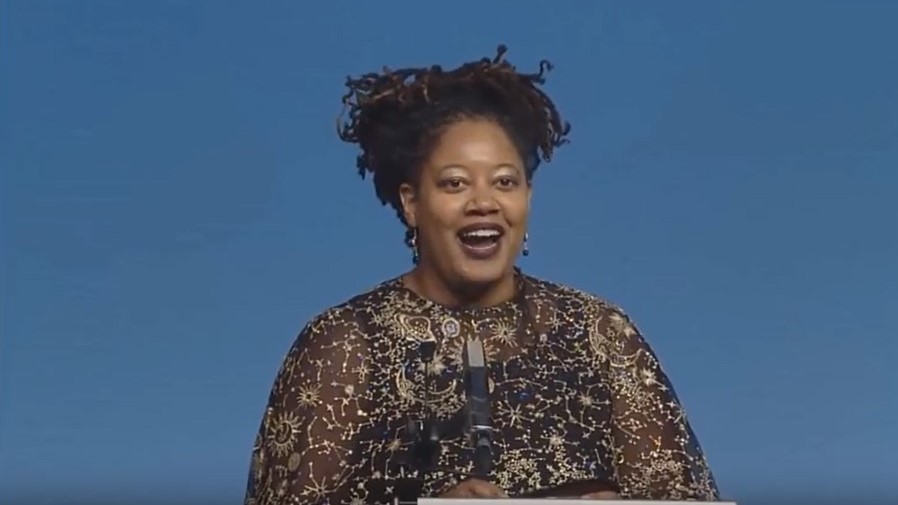 National Public Radio is wrapping up the year with authors, hailing science-fiction author N.K. Jemisin, who has now won the Hugo Award for three straight years from the World Science Fiction Convention. She was the first black author to win the Best Novel prize. NPR anchor Ari Shapiro explained her "Broken Earth" books "take place in a world where natural disasters are more common and more destructive. And the people with powers to mitigate those disasters are feared and oppressed."
National Public Radio is wrapping up the year with authors, hailing science-fiction author N.K. Jemisin, who has now won the Hugo Award for three straight years from the World Science Fiction Convention. She was the first black author to win the Best Novel prize. NPR anchor Ari Shapiro explained her "Broken Earth" books "take place in a world where natural disasters are more common and more destructive. And the people with powers to mitigate those disasters are feared and oppressed."
But it turns out this is science fiction "ripped from the headlines" -- and somehow, in Jemisin's mind, the Ferguson riots of 2014 were an "unarmed, peaceful protest." From the interview on Wednesday night's All Things Considered:
SHAPIRO: There's a line from your third book that stood out to me. And the character who says this says it years before the apocalypse that is the central event in the series. And the line is: (reading)
"They are afraid because we exist. There's nothing we did to provoke their fear other than exist. There's nothing we can do to earn their approval except stop existing. So we can either die like they want or laugh at their cowardice and go on with our lives."
And when I read that, I thought that could have been spoken by black people in 19th century America or Jews in 20th century Europe or Rohingya in Myanmar today.
JEMISIN: Yeah, yeah. I mean, it's - a lot of the book is speaking kind of from my personal places of frustration.
You know, I tell people that I wrote the first book of the trilogy, anyway, while watching Ferguson unfold on the Internet during the summer of 2014. And a lot of the anger that you kind of see, and a lot of the questions of our society that you see are me looking at, you know, tanks rolling down the streets of an American city towards an unarmed, peaceful protest and treating them like the enemy. And, you know, why are they being treated like the enemy when literally all they're asking for is to not get shot?
You know, that was it. It was mostly just my frustration kind of coming through in a lot of different ways.
What? Obviously, Jemisin defines "woke," explaining on Amazon she writes "decolonized fiction, for our postcolonial world." But "peaceful protest" is simply a lie. Why didn't NPR push back? Associated Press reported that protesters threw Molotov cocktails at police. Even NPR reported gently at the time things like "The march ended in front of what's left of a convenience store that was torched by rioters Sunday night." And this report: "Five buildings in Ferguson and several more in neighboring Dellwood were set on fire during the unrest after Brown's death. Nearly all have been demolished and most are being rebuilt."
One can criticize the police response as heavy-handed, but it's not right to suggest everyone was "peaceful." TIME magazine published a defense of rioting, comparing the Ferguson rioters to the Boston Tea Party, complete with a picture of a police car being destroyed by fire.
PS: When she first won the Hugo, she expressed joy to The New York Times: "What I’m seeing here is that I’m not alone in being tired of medieval Europe and phallic spaceships."




